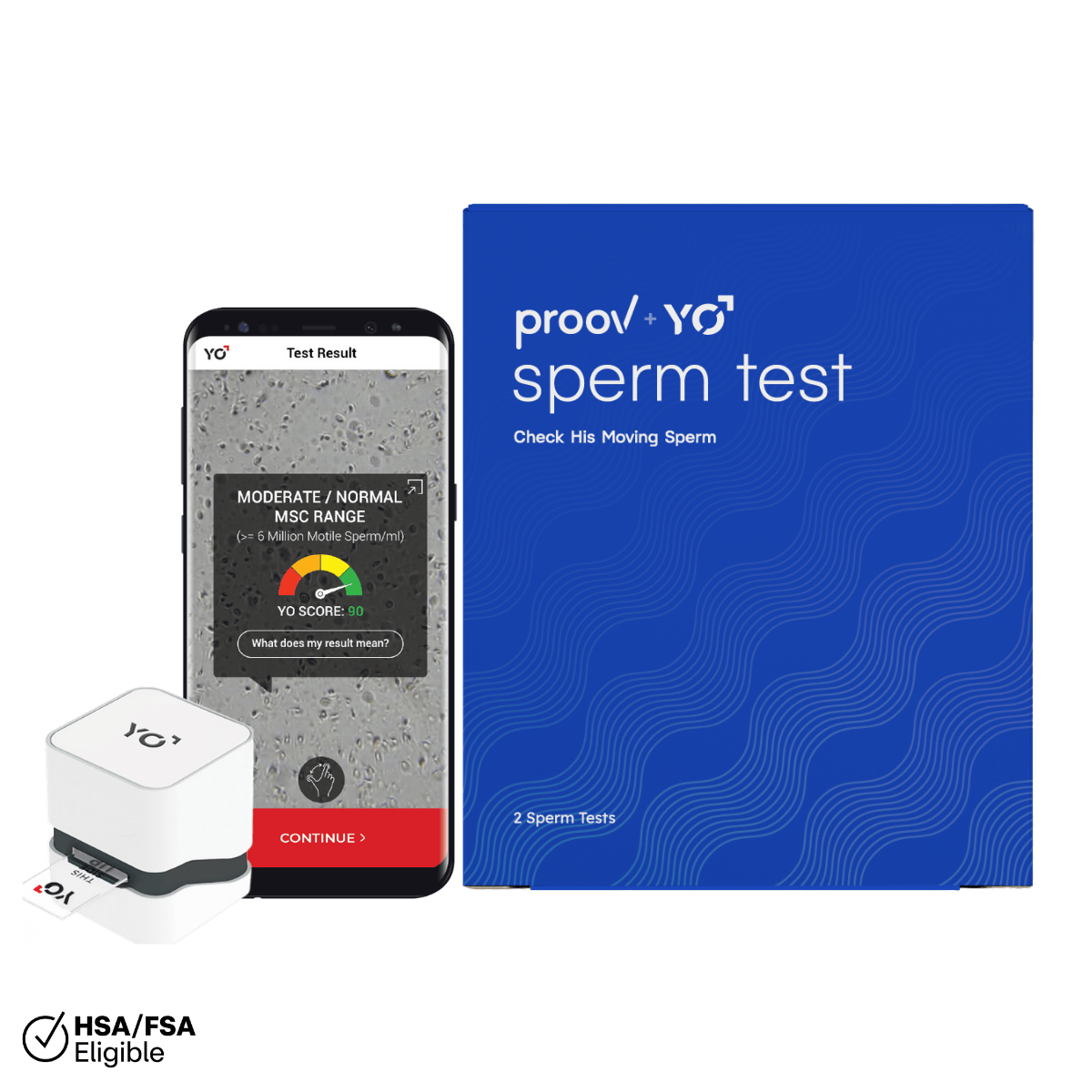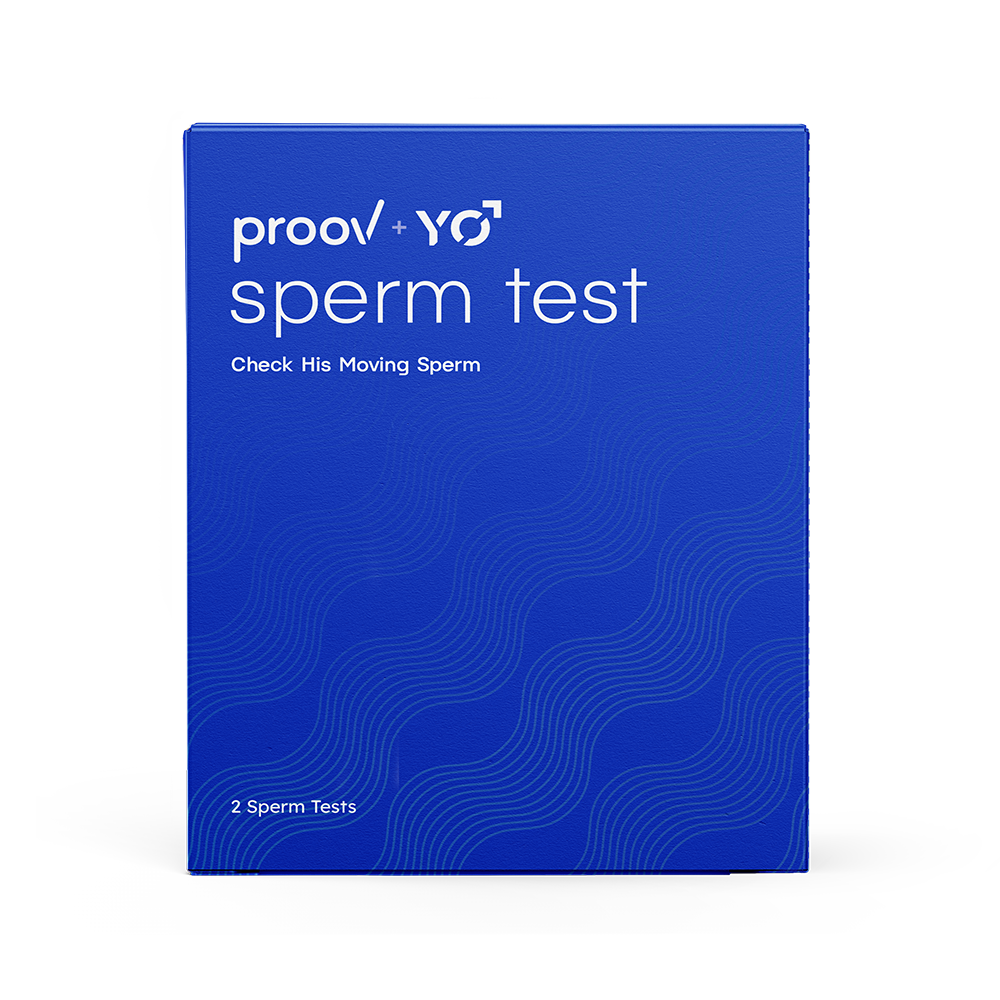If you are trying to conceive, you likely want to make sure you understand what impacts your chances at getting pregnant. While there are many pieces to the pregnancy puzzle, progesterone is a critical one!
Can progesterone help you get pregnant? Keep reading to learn more about why progesterone is important and if taking progesterone can increase your chances of pregnancy.
What is progesterone and why is it important?

Progesterone is a female reproductive hormone, necessary for supporting implantation and pregnancy, which is why it is also often called the “pregnancy hormone.” Along with estrogen, it is one of the main hormones that works to regulate our cycles.
During the first half of our cycle — the follicular phase — progesterone is low, while estrogen is elevated. Estrogen helps thicken the uterine lining in preparation for pregnancy.
Then, after ovulation the second phase of our cycle — also called the luteal phase — begins. During the luteal phase, the follicle from which the egg was released turns into the corpus luteum. The corpus luteum starts producing progesterone, which makes the already thickened uterine lining “sticky” enough so that an embryo can comfortably implant.
The corpus luteum is a temporary structure, which will stop secreting progesterone and disintegrate right before your next period, if pregnancy doesn’t occur. This causes your uterus to shed its lining, meaning it starts your period.
If, on the other hand, the egg gets fertilized by sperm and it implants into the uterine lining, the corpus luteum will continue secreting progesterone in order to help sustain the pregnancy. It does so until the end of the first trimester, when the placenta takes over.
During pregnancy, progesterone’s job is to ensure the uterus and fetus get the nutrients and oxygen they both need. It also prevents premature contractions. As you can see, progesterone is essential for implantation and pregnancy!
What happens if my progesterone is low?
As we’ve seen, having enough progesterone present during the luteal phase is critical to sustaining a successful pregnancy. The short answer is that without enough progesterone, it can be more difficult to conceive or stay pregnant.
This is because without enough progesterone, the uterine lining may not be prepared or “sticky” enough to receive an embryo. The uterine lining is only receptive as long as enough progesterone is present.
If your progesterone rises to an optimal level but drops too soon, this can cause a chemical pregnancy or, according to a recent study, early miscarriage. This is because the uterine lining might be receptive for a short period of time, giving the embryo a chance to implant, but without progesterone production the pregnancy cannot be sustained.
Additionally, low progesterone may cause other symptoms including a short luteal phase, premenstrual syndrome (PMS), menstrual cramps, or spotting before your period.
Some women, especially those with PCOS, may experience anovulation (lack of ovulation) which leads to no progesterone production. After all, if no egg is released then there is no corpus luteum to produce progesterone. If you suspect you’re not ovulating or producing progesterone, we recommend consulting your doctor.
Does taking progesterone increase pregnancy chances?

Can progesterone help you get pregnant? Progesterone for conception has been a very controversial topic and there is still a lot of conflicting research out about progesterone supplementation and pregnancy.
Back in 2015, there was a study that showed progesterone supplementation was not effective in improving live birth rates. However, this study was flawed.
Researchers gave half of the subjects vaginal progesterone after they received a positive pregnancy test, while the other half received nothing. The study showed only a 2% increase in live birth rates in the group that received vaginal progesterone, which led them to believe progesterone supplementation didn’t really help.
But, as we’ve seen, progesterone is necessary for preparing the uterus for implantation, long before a woman ever gets a positive pregnancy test. In the case of this study, women were receiving progesterone supplements too late. Unfortunately, this study was widely publicized and many medical professionals still believe it to be true.
However, since the publication of this study, other studies have come out to support the importance of progesterone when trying to conceive. One study found that the presence of PdG (a urine marker of progesterone) in urine during the luteal phase correlated to a 92% chance at successful pregnancy, compared to only a 19% chance in those with low PdG levels. That’s a significant jump!
Another study found that giving women progesterone supplements 3 days after ovulation (way before they’d ever get a positive pregnancy test), showed a 17% increase in live birth rates for women with a history of pregnancy loss.
Many researchers believe that taking progesterone to get pregnant during the luteal phase, once ovulation has been confirmed, increases the chances at pregnancy while diminishing the likelihood of early miscarriage, especially in women with history of recurrent pregnancy loss.
How do I know if I have low progesterone?

If you have low progesterone, you may have some of the following signs, although you may not have yet made the connection between them and progesterone. The most common symptoms of low progesterone are:
- Irregular periods
- Severe PMS
- Short luteal phase, usually under 10-11 days
- Anxiety
- Low libido
- Sore breasts
- Infertility
-
Recurrent early pregnancy loss
The best way to understand where your progesterone levels stand is by getting them tested. While you can test progesterone via blood, we believe that measuring progesterone markers in urine, specifically PdG, is faster, easier, and more cost-effective.
With Proov Confirm, the first and only FDA cleared PdG test to confirm successful ovulation, you can track your PdG levels over four critical days during the luteal phase to ensure you have enough PdG to support implantation and pregnancy.
Our patented Proov PdG testing protocol recommends testing PdG levels on days 7, 8, 9, and 10 after peak fertility. We like to see 3-4 positive PdG tests during this window (with a positive on 10 DPP) to confirm that ovulation was in fact successful.
If you get anything less than 3 positive PdG tests or do not get a positive test result on day 10 past peak, this could be a sign of “weak” ovulation, or low PdG production. As we’ve seen, low PdG levels during the luteal phase can make it more difficult to get pregnant.
The bottom line is that progesterone is critical for conception. The more you know about your levels now, the better set up for success you can be in the future!













